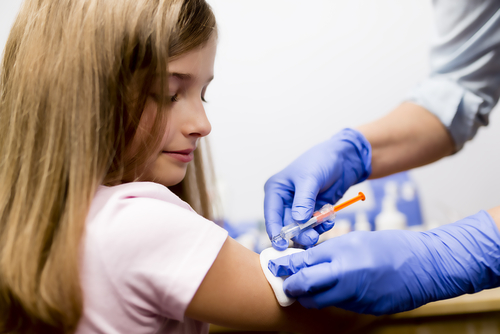With flu season upon us, parents are faced with the yearly question of whether their child should receive an annual flu shot. As parents, we all want to do what is best for our children, but it’s often difficult to know what the best approach may be.
Should my child get a flu shot?
In the U.S., 830 pediatric flu-related deaths were reported from October 2004 to September 2012 and about 40% of these children were previously healthy.
Flu rates generally highest among children, who also contribute greatly to the transmission of the flu in the community. This is why the Advisory Committee on Immunization Practices (ACIP) recommends an annual flu shot (vaccination) for everyone six months and older.
When children get the flu, up to one in three kids may develop serious complications and is at a higher risk for children six months to two years of age and kids with a chronic illness.
Even healthy children under five years of age are more likely to require hospitalization for flu complications such as pneumonia, seizures and serious bacterial infections.
So what about other recommended vaccines?
Vaccines and concerns about their safety are a frequent topic of conversation among parents, legislators and even presidential candidates. The fear is that vaccines cause autism because of vaccine ingredients—like aluminum and thimerosal—and the number of vaccines administered at one time.
Despite these concerns, the medical community strongly advocates that childhood immunizations are safe, highly effective and should be administered according to the recommended schedule, beginning at birth.
Understandably, it can be difficult for parents to navigate through the wide range of opinions and overwhelming amount of information about immunizations.
Here’s information that addresses some of the most common vaccine concerns:
What are the risks of side effects?
All medications, including vaccines, have risks of side effects. While it is extremely rare, vaccinations can be associated with serious complications, such as a severe allergic reaction or long-term neurologic problem. However, research shows that this affects less than one in 1 million and is so rare that actual association with the vaccine is difficult to determine.
Vaccines and the recommended schedule of administration are continually monitored for safety. Parents are encouraged to report any severe side effects to the Vaccine Adverse Event Reporting System (VAERS), which makes adverse side effects available to the public.
The concern that vaccines cause autism began with a single study involving 12 children published in a respected British medical journal in 1998. The study proposed a link between the measles-mumps-rubella (MMR) vaccination and autism, but the article was later retracted when it was discovered that the study was inaccurate.
Nevertheless, that publication launched an enormous debate regarding the possibility of a link between childhood vaccinations and the development of autism. Since then, over 30 independent investigations carefully evaluated a possible association between vaccine administration, the recommended vaccine schedule and thimerosal content, and no relationship was found between any of these factors and autism.
Do children receive too many vaccines too soon?
There is reasonable parental concern about the number and frequency of vaccines in the recommended schedule. However, the vaccines given in the first two years of life constitute a small fraction of antigens that a baby’s immune system fends off every day.
Babies should receive multiple vaccines because they are most vulnerable to infectious diseases in infancy.
Many vaccines can be safely and effectively combined into one shot, and delaying or spreading out a child’s vaccines will only increase the number of shots and office visits and the amount of time a child is vulnerable to serious infections.
Lorrie F. Odom, MD, practiced pediatric oncology for 37 years. She is co-chair of health, wellness and safety for the Colorado PTA and works with other dedicated organizations that advocate for the well-being of children and adolescents.





